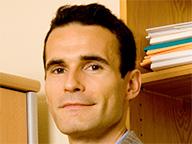Student Club Events
—
2014 GMA Conference: "Globalization: Reaching Local Consumers on a Global Scale"
—

This year’s GMA conference, "Glocalization: Reaching Local Consumers on a Global Scale," will tackle the question of how brands in today’s interconnected world maintain their core identity, while also striving to make that identity universal and relevant in local markets.
Student Club Events
—

This year’s GMA conference, "Glocalization: Reaching Local Consumers on a Global Scale," will tackle the question of how brands in today’s interconnected world maintain their core identity, while also striving to make that identity universal and relevant in local markets.



















